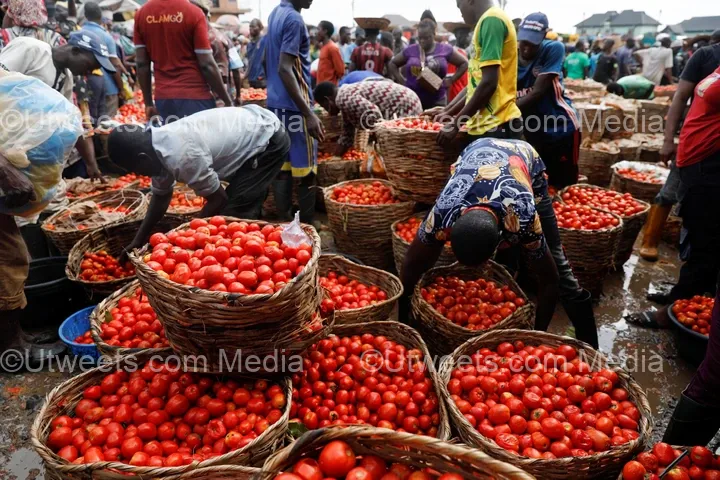The prices of major food staples such as rice, beans, and bread have skyrocketed, with year-on-year increases exceeding 100%, according to the October 2024 Food Price Watch released by the National Bureau of Statistics (NBS). ...READ THE FULL STORY FROM SOURCE ...READ THE FULL STORY FROM SOURCE
Beans, a staple in many Nigerian households, experienced a dramatic 254.23% increase from N790.01 per kilogram in October 2023 to N2,798.50 in October 2024. Similarly, bread prices surged by 103.76% during the same period, climbing from N760.82 to N1,550.24. Local rice, sold loose, recorded a 137.32% increase, rising from N819.42 in October 2023 to N1,944.64.
On a month-on-month basis, food prices continued to rise steadily. The price of beans increased by 2.19% from N2,738.59 in September 2024, while bread saw a 1.44% rise from N1,528.19 during the same period. Local rice recorded a marginal increase of 1.56%, reflecting persistent inflationary pressures.
The NBS also reported significant price hikes in other staple foods. A dozen medium-sized agricultural eggs rose by 140.21% from N1,112.22 in October 2023 to N2,671.60 in October 2024. Month-on-month, the price increased by 7.42% from N2,487.04 in September 2024. Boneless beef prices surged by 98.73% year-on-year, reaching N5,858.58 in October 2024.
State and regional analysis revealed wide variations in food prices. Bauchi recorded the highest average price for 1kg of beans at N3,750.00, while Yobe had the lowest price at N1,749.52. Niger State had the highest price for a dozen medium-sized eggs at N3,450.00, whereas Adamawa recorded the lowest at N2,050.00. For bread, Rivers State had the highest average price of N1,867.14, while Yobe recorded the lowest at N960.07.
Regionally, the South-South recorded the highest average price for beans at N3,274.39, while the North-East had the lowest at N2,294.29. Similarly, bread prices were highest in the South-South at N1,829.25 and lowest in the North-East at N1,360.85.
Highlighting the scale of data collection, the NBS noted, “Prices are collected across all 774 local government areas from over 10,000 respondents and locations.” The report added that fieldwork involves over 700 staff and relies on household consumption data to calculate the Consumer Price Index (CPI). The sustained increase in food prices underscores the impact of inflation on Nigerian households, as staple items remain out of reach for many, further straining their purchasing power.…READ THE FULL STORY FROM SOURCE : …READ THE FULL STORY FROM SOURCE
See| Pastor daughter mistakenly send her pr!vate video meant for her bf to church whatsApp choir group :




